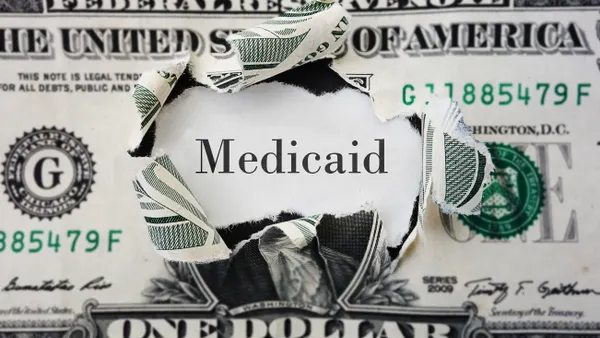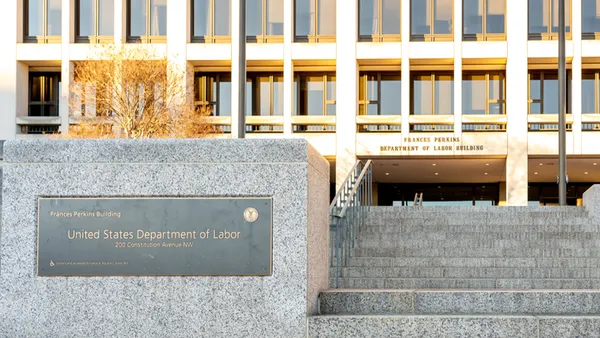Dive Brief:
- Voters across political parties agree that insurers are most at fault for medical debt in the U.S., according to a national survey published this week.
- Sixty-three percent of all respondents blamed insurance companies the most for medical debt, according to the poll by nonprofit Undue Medical Debt. Just 12% blamed pharmaceutical companies the most, and 9% pointed the finger at hospitals.
- Respondents said they broadly favored policy solutions to rein in medical debt, as rising healthcare costs have become a sticking point in Washington.
Dive Insight:
Thirty-five percent of respondents said they held medical debt and nearly 70% said healthcare was unaffordable, according to the survey by Undue Medical Debt, research firm NORC and polling firm PerryUndem.
Almost half said they struggled to manage common medical expenses, like paying for dental care or affording an insurance deductible, according to the poll, which surveyed more than 1,300 general election voters this summer.
Fear of racking up debt is also affecting whether Americans decide to access care at all, according to the survey. Thirty-five percent reported skipping or delaying medical care in the past year, experienced pain due to delayed care or cut pills in half to conserve costs.
Meanwhile, respondents are largely supportive of policy changes to rein in medical debt.
Three-quarters of respondents agreed the nation should switch to a different form of health insurance that doesn’t tie coverage to employment, according to the survey. Today, most Americans under 65 receive health plans through their jobs.
“Medical debt is a common ground issue that voters, almost universally, want their elected leaders to address,” Allison Sesso, CEO and president of Undue Medical Debt, said in a statement.
For example, nearly all respondents said they’d support a law that limited the interest rate charged for medical debt. And almost 90% reported they would back a policy that required all hospitals to use the user-friendly application for financial assistance.
Additionally, more than 80% said they’d support banning providers and collections agencies from reporting medical debt on credit reports. A regulation that wiped medical debt from credit reports was finalized at the tail-end of the Biden administration, but it was vacated by a federal judge this summer before it could go into effect.
Meanwhile, 73% said they’d approve raising the income threshold to allow more people to qualify for Medicaid — at a time when enrollment in the safety-net insurance program is set to shrink after President Donald Trump signed a major tax and policy law that included significant Medicaid cuts this summer.
Healthcare costs are likely to continue to be top of mind for Americans. Employers are forecasting a major increase in costs next year, fueled by heightened pharmacy spending and expenses for chronic and complex conditions.
Plus, enhanced premium tax credits for Affordable Care Act plans are set to expire at the end of the year, the issue at the center of a weekslong government shutdown. Premiums could more than double for ACA beneficiaries if the subsidies are allowed to lapse — and lawmakers are running out of time to make policy changes, as open enrollment in most states is just days away.















